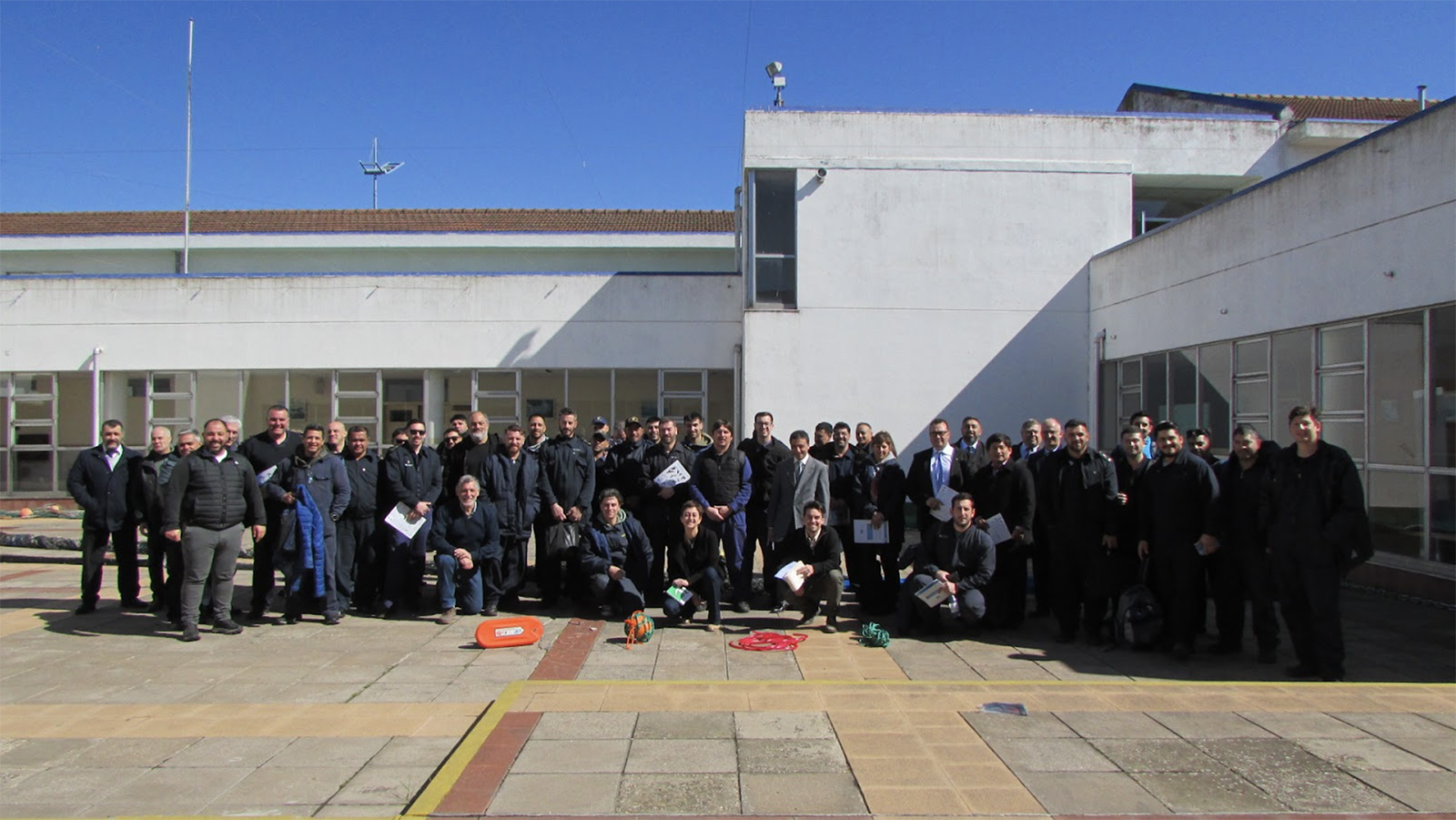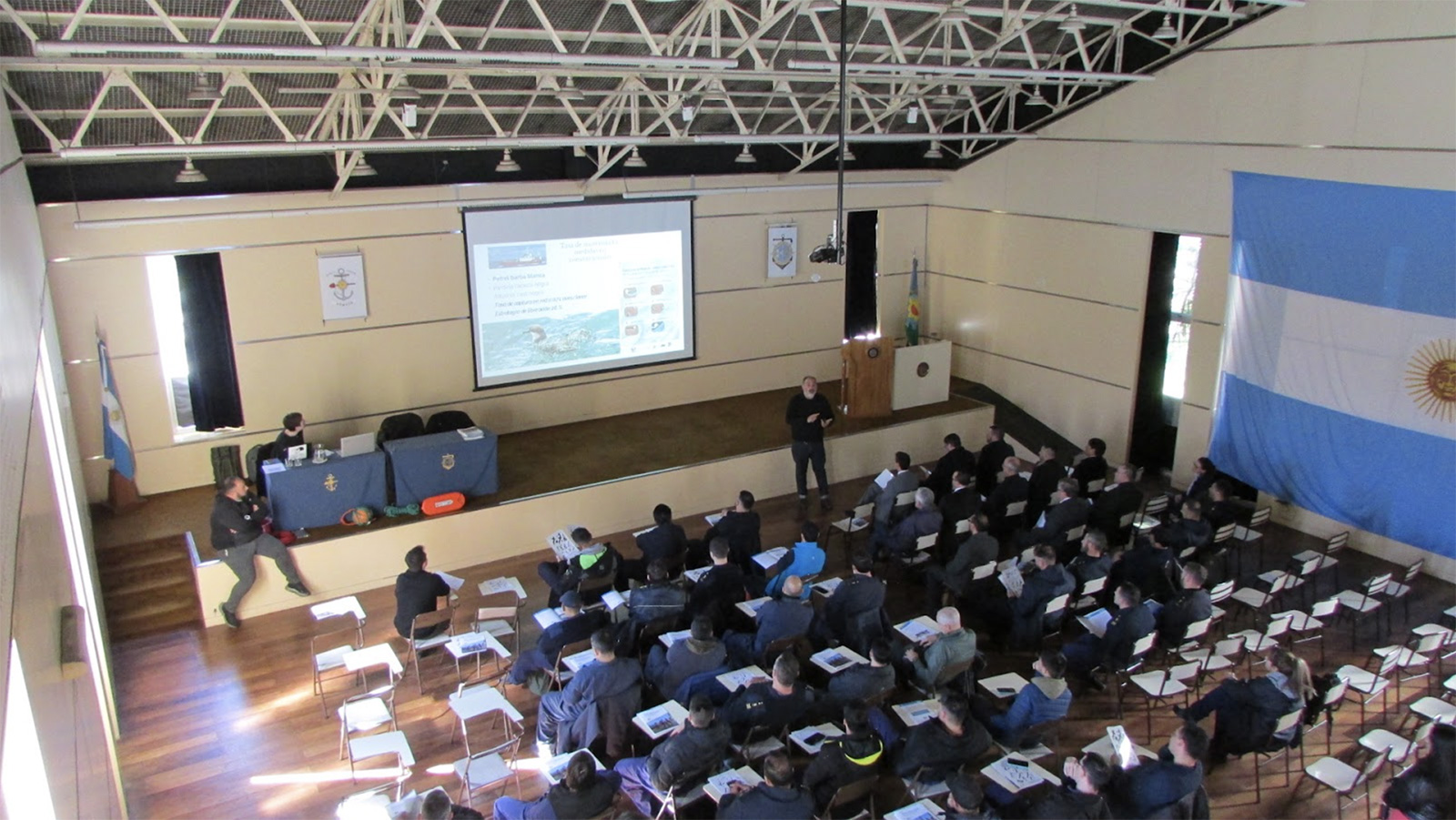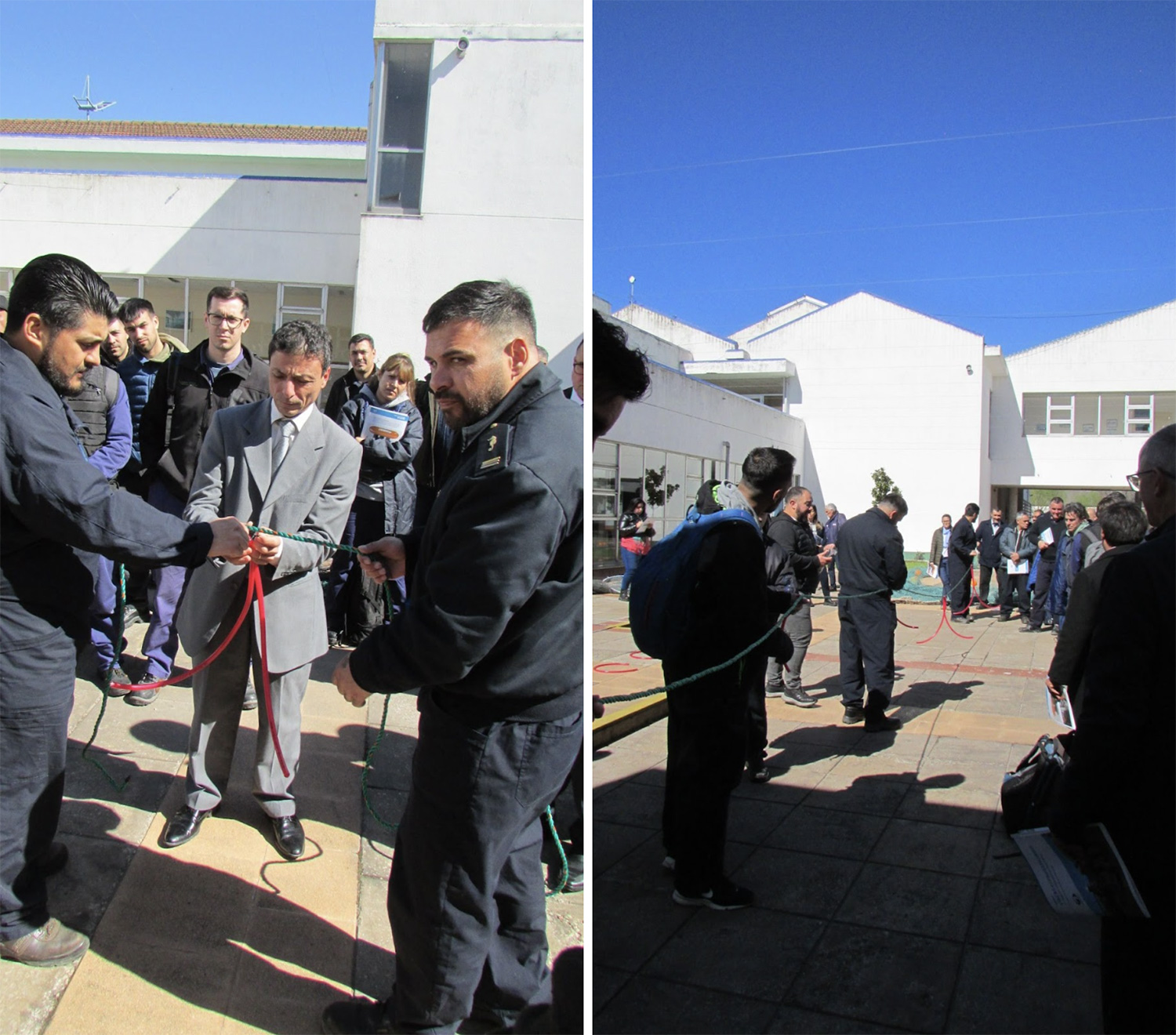
It was part of the Ecosystem Approach to Fisheries Seminar offered by the National Fishing School in order to promote an integral vision of the marine environment. Topics addressed included the management of plastic marine debris, bycatch of chondrichthyans, birds, mammals and sea turtles, as well as raising awareness of the role of women and diversity within the sector.
The workshop was led by Leandro Tamini and Leandro Nahuel Chavez, who are part of the Marine Program of Aves Argentinas (AA), and facilitated by Lucio Savignano, representing Fundación Cambio Democrático (FCD), with the collaboration of Veronica García of Fundación Vida Silvestre (FVS). The event, which was attended by 43 students from the Fishing Captain and Fishing Pilot course, sought to raise awareness of the problem of seabird bycatch and its main causes, and to promote the adoption of good practices to mitigate it.
Rafael Guiñazu, Secretary of Extension and Liaison at the National Fishing School, pointed out that: ”the joint work being done with the Forum Organizations is of vital importance for the comprehensive training of fisheries officers and their understanding of the implications of interacting with the environment where they work” and particularly for “the mitigation of bycatch through the use of bird-scaring lines“.
Regarding the articulation work with the National Fishing School, Leandro Tamini (AA) pointed out that the institution “has in its classrooms those who make and will make decisions in the fishing activity. Since the care of the environment in this sector has to be a decision, it is very important for the project to reach this audience to develop the training and thus positively influence the vision they have about the marine environment“.

Bycatch, also known as “unintended bycatch” or “non-target catch,” refers to the unintentional capture of unwanted species. In other words, they are those species of animals that were not the primary target of the fishery, but end up caught in nets, hooks or other fishing gear along with the target species.
As a result of the interaction of seabirds with fishing vessels and gear, bycatch is a threat to albatrosses and petrels. The combination of low fecundity rates and high parental care makes seabird populations particularly vulnerable to the impacts of bycatch, putting many of these species at risk of extinction.
The use of bird-scaring lines ((BSLs) is an effective, simple and economical solution to mitigate this problem. For this reason, their use has been established in different fisheries around the world and, at the national level, Resolution 03/17 of the Federal Fisheries Council establishes their mandatory use in freezer trawlers using bottom trawls. However, its implementation is still scarce, reaching a total of approximately 7 vessels.
Addressing bycatch in a practical way
The activity was not limited to a theoretical explanation, on the contrary Leandro Nahuel Chavez developed a practical activity where participants assembled a bird-scaring line (BSL) to learn about each integral part of this mitigation measure. “Some who were already familiar volunteered for the task. Through reading and interpreting the document for shipboard personnel, they were able to recognize that the construction and deployment of a BSL is a very easy action to perform on board,” noted Chavez.

Through a fluid dialogue with the participants, the project team was able to deepen their understanding of the obstacles to BSLs implementation and discuss possible solutions. On this point, Savignano noted that: “the meeting allowed members of the participating organizations to increase their understanding of the situation, build trust and nurture the channels of dialogue and collaboration to conserve bird species threatened by fishing”. In addition, “it was an opportunity to consult the views of the people present on the situation of threatened bird species and the impact of fishing.
The training on mitigation measures to reduce seabird bycatch represents a significant step towards promoting responsible and sustainable fishing practices. This initiative highlighted the implementation of BSLs to address seabird bycatch as part of an ecosystem approach to fisheries.
About the Strengthening the Resilience of Argentina’s Marine Protected Areas Project:
The objective of this project is to promote actions aimed at ensuring that the ecosystems of the Argentine Sea maintain the integrity of their biodiversity with measures aimed at facilitating their capacity for adaptation and mitigation in the face of climate change, and contributing to the health and well-being of people.
The Project is coordinated by the Forum for the Conservation of the Patagonian Sea and Areas of Influence, and implemented by eight of its member organizations:


These organizations seek, through articulation and participation, to generate a better understanding of the problem of marine pollution by plastics from fishing operations on the biodiversity of the Patagonian Sea and thus promote comprehensive and sustainable solutions to prevent it, in order to protect and conserve the marine ecosystems of Argentina.